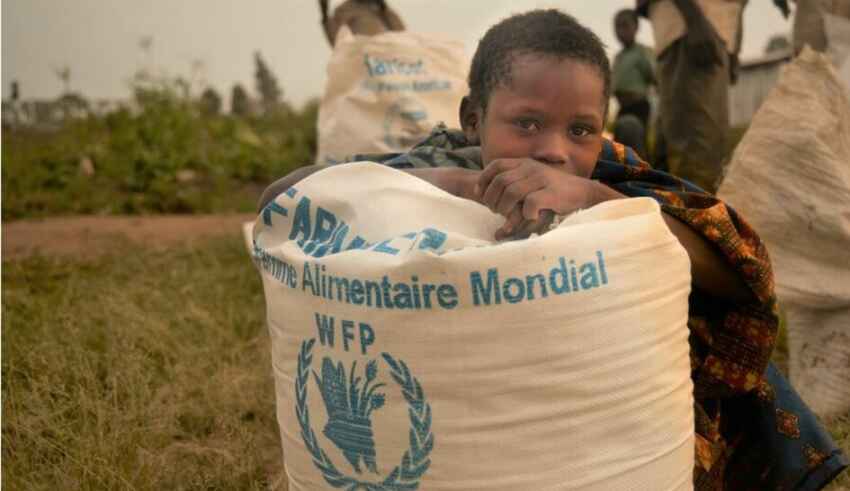
The use of starvation as a weapon of war is an antique method of warfare that belligerents have been using for centuries. The weaponization of hunger is an unfortunate reality used in many contexts of armed conflicts around the globe, which is causing suffering and deaths mostly to the most vulnerable people in such contexts: the civilians. Starvation as a tactic of war, unfortunately contributes to devastating already serious humanitarian crisis. In highlighting that this technique is currently used in wars in Africa, the Middle East and Eastern Europe, focus here is on Yemen.
In order to better comprehend what starvation as a weapon of war is, it is fundamental to make sense of this serious atrocity. As a matter of fact, in recent and current armed confrontations, belligerent have used starvation as a tactic of war to weaken the enemy, particularly targeting civilians and, therefore, obtaining an advantage regarding the armed conflict’s outcome. Such a modus operandi consists in deliberately destroying the seasonal pattern of crops, displacing farming populations, farmlands, and other food sources. Moreover, the most used way to intentionally destroy means of life’s sustainability is to poison water resources. What is more to high point is that enemy’s warring parties often deliberately block humanitarian aids from reaching fragile and starving population. It is clear that, such practices, put in place by enemy combatants, render life impossible causing, as stated, suffering, diseases and deaths. Furthermore, the use of starvation of civilian populations as a method of war is prohibited by international law (1). Such an affirmation is stated by the four Geneva Conventions of 1949 and the two Additional Protocols of 1977, the United Nations Security Council, and the Rome Statute of the International Criminal Court, to deliberately starve a population is a war crime. The Global Report on Food Crises of 2022 has highlighted that the number of people facing acute food insecurity is approximately close to 193 million people and that this number is destinated to rise significantly (2).
Focus is now on Yemen. The war in the country has been ongoing for many years. As a matter of fact, tensions exacerbated resulting in an armed confrontation in 2015. Many reports have affirmed that warring parties have deliberately deprived civilians of means of sustainability aimed at satisfying their primary needs, meaning food and water sources. In particular, the report “Starvation Makers” edited by Mwatana for Human Rights (3), stated that the Saudi/UAE-led-coalition, acting with the consent of the internationally recognized government of Yemen and fighting with government forces loyal to President Hadi and the Ansar Allah (Houthi) armed group has had a significant impact in food and water access in Yemen. Evidence suggest that the Ansar Allah armed group has violated international humanitarian law and international human rights law in deliberately provoking starvation to civilians by using such a technique as a weapon of war. As a matter of fact, airstrikes carried out by the Saudi/UAE-led coalition have destroyed farms, water facilities and rendered impractical agricultural areas, irrigation systems, livestock, foodstuffs and fishing equipment’s, including artisanal boats. As generally stated, the intentional obstruction of humanitarian aids, which is another mean of causing starvation, was used in Yemen. Such an impediment for the civilians to properly satisfy their primary needs was incremented by the imposition of restrictive economic measures, particularly a naval and aerial blockade, contributing in impacting access to food and water. It is fundamental to underline that members of the Saudi/UAE-led-coalition and the Houthi armed group did know that people, including children, were and still are dying of starvation: they were and are supposedly intentionally provoking such a monstrosity. Moreover, it is clear that the ongoing armed conflict has been cutting people’s salaries for years, leaving hundreds of thousands of Yemeni workers without the possibility to economically sustain themselves, generating a severe increase of the country’s poverty. Since the Houthis now control a portion of the State’s institutions that collect taxes, all attempts to resume paying the salaries were unsuccessful. The government argued that because they weren’t getting all the tax money, they couldn’t pay all the salaries. Moreover, the West is flooding Yemen with aid funds, but there is no real confidence that monetary funds are being received by people in need. While the majority of Yemenis are poor and in need, many of them only have one meal per day. Corruption is rising on both sides of the conflict. Most members of Yemen’s internationally recognized government reside outside of Yemen and invest in property there, particularly in Egypt and Turkey.
Yemen is living the worst humanitarian crisis of all times. The international community must act concretely on this war and all of its facets. First and foremost, it should prevent an increase of poverty in the country; however, evidence suggests that donated aid money to people is not sufficient given the persistent corruption. It is for this reason that the international community must adapt a monitoring mechanism to ensure that money effectively contribute to alleviating Yemeni’s sufferance. Moreover, urgent action to suspend all hostilities must be implemented: civilians cannot stand such a volatile and perilous situation any longer. Those responsible of deliberately causing hunger as a mean of war must stop and be held accountable for their actions in that such wrongdoers are perpetrating a war crime. It is for this reason that a call for action is made here to the ICC. In point of fact, the conflict in Yemen has been ongoing for eight long years and, as of now, notwithstanding the criminalization of intentional starvation and its detestable human cost, no prosecution of such a crime has yet happened at the international level. Urgent and tangible solution must be found the soonest possible as too many lives have already been lost.
References:
- https://www.iiea.com/blog/the-rome-statute-and-hunger-as-a-weapon-of-war-the-journey-towards-ending-impunity-for-starvation-tactics#:~:text=The%20use%20of%20starvation%20is,an%20unfortunate%20reality%20in%202022.
- https://docs.wfp.org/api/documents/WFP-0000138913/download/?_ga=2.233880478.1697016717.1683043012-10032172.1683043012
- https://mwatana.org/wp-content/uploads/2021/09/Starvation-Makers-2021-En.pdf
By The European Institute for International Law and International Relations.















